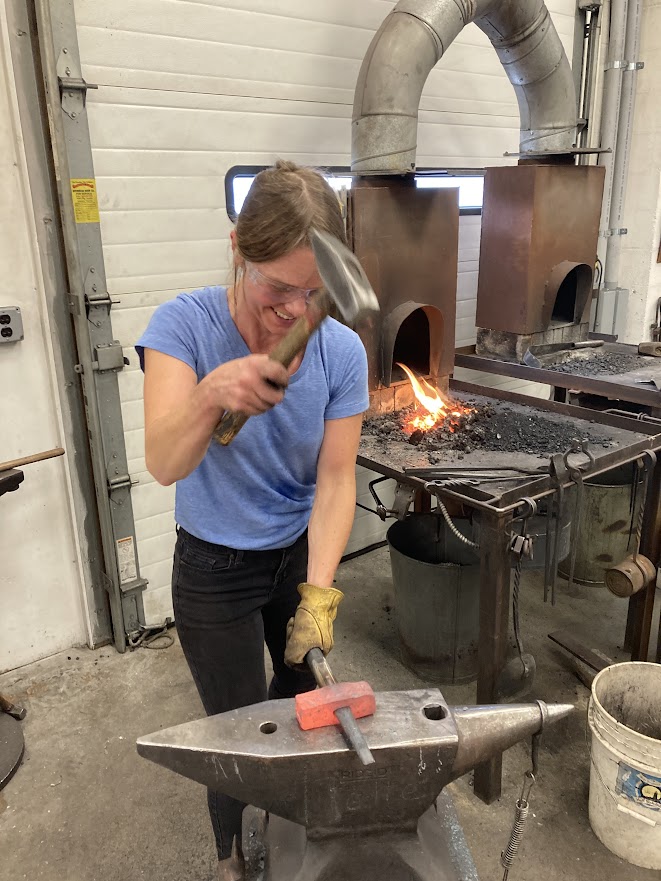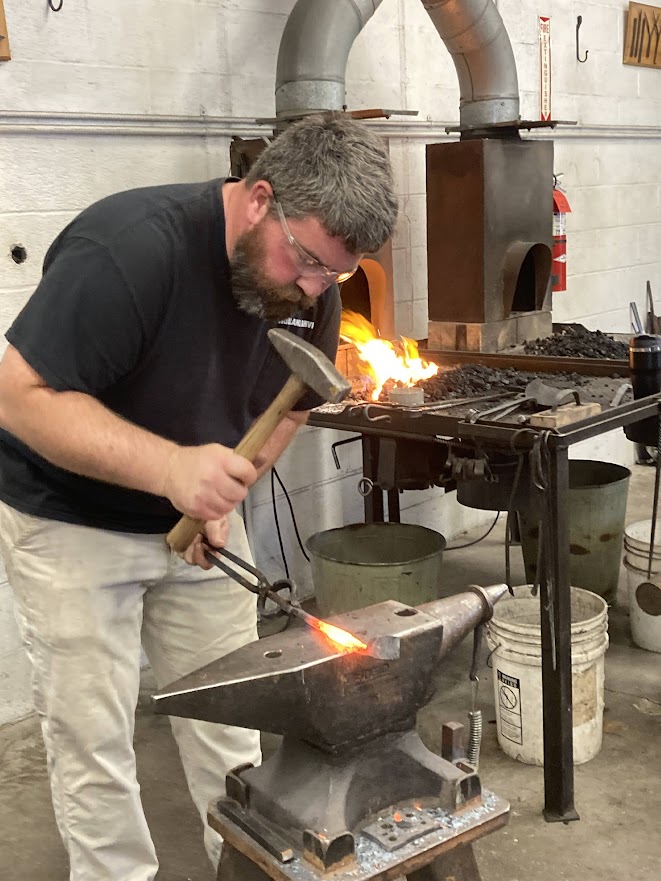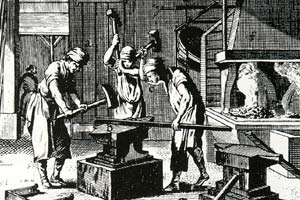Our Blacksmithing Program
The Metalsmithing studio at the New England School of Metalwork has been designed to integrate both traditional and contemporary practices where we run both a Blacksmithing and Bladesmithing program. With full quantities of hand tools and equipment to accommodate up to eight students, each of the eight forging stations having both coal and gas forges, vise and anvil. Only a few steps away in any direction students will find treadle hammers and two pneumatic power hammers, hydraulic forging press, post vises, belt grinders and racks of hand tools. Our ever growing assortment of traditional hand and power tools provide students with the tooling required for many processes. The diverse array of nationally known instructors provide students with many options and many disciplines of artistic metalwork.
It is very important you read the Skill Level Guide here or below before choosing a course. You will find each course has its specific skill level assigned on its page.
Most courses run from 8am to 5pm daily with a one hour break for lunch.

Safety is of great importance, a full leather shoe or boot is mandatory as well as full length pants. NESM will provide any necessary PPE needed including safety glasses, gloves, ear plugs, dust masks and face shields.
Since the New England School of Metalwork is solely dedicated to metalworking, the school provides an abundant class experience along with a serious and very thoughtful approach to hands on learning. Our shops are run and maintained by professional craftsmen in these fields of study. The design of the shop space and the arrangement of tools and equipment are all established around giving you the premier learning experience. We also occasionally offer some blacksmithing tools and materials for sale, see our Items for Sale page for more details.
As our goal is to provide instruction and education in the most comfortable atmosphere available, it is as important for students to enroll in the appropriate level class. The professional craftsmen who instruct have specific levels to which the class or workshop is designed. Therefore we have developed a brief guide to help students define their skill level. These skill level references are attached to every blacksmithing class page we offer.

Skill Level Guide: PLEASE READ !
It is very important for instructor and student alike to be able to identify skill levels. The following is meant to help place students in a class with the greatest comfort and potential for their success and safety. These skill levels are preferred for classes to function at their best. We strongly recommend you place yourself in a workshop that best suits your skill level.
Beginner: Little to no experience. Having never lit a fire or hit hot metal.
Seasoned Beginner: Having a few basic classes under your belt from various schools or other competent blacksmiths, begin competent to fairly proficient with all basic forging processes and the use/operation of the standard tools and equipment of the trade.
Intermediate: The above plus 3 years of part-time to full time in the forge and a good working knowledge/experimentation of joinery, tool making, forge welding and efficiently forging clean tapers, shoulders, drawing stock down to dimensions, spreading stock, layout and design.
Advanced: The above plus 4 years of more serious work, small to medium size projects, a proficient working skill base of joinery, tool making, forge welding, layout, completely proficient in all major forging processes, tools and equipment.
The New England School of Metalwork has nearly 75% of its courses approved for VA benefit. You can use your VA benefit for Blacksmithing, Bladesmithing or Welding, call or email us for further information.

